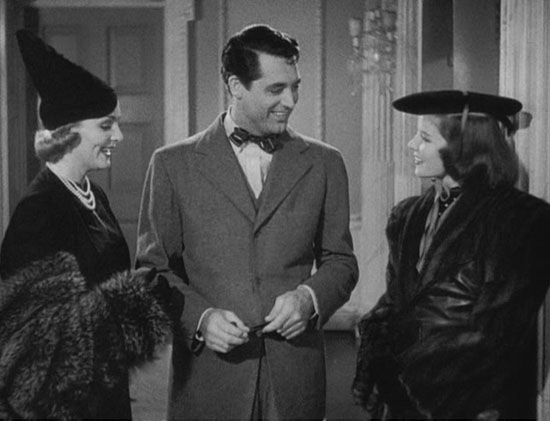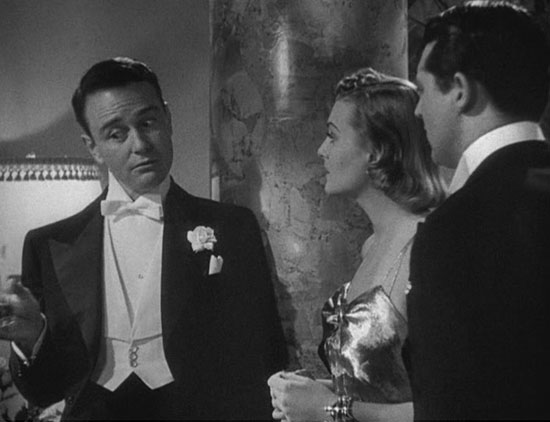Katy might have misinterpreted my comment that I hate the characters and don’t like the story but thought the movie was pretty good. Well, I’m not here to expain, only to repeat.
Big wide colorful movie with long motion camera shots, some catchy musical numbers, definitely preferable to the non-musical version of the Pygmalion story.
Audrey Hepburn is the best part as Eliza Doolittle, cute and expressive. She nails the early scenes where she’s gotta howl hideously. Got no problem with actors Rex Harrison (lead actor in Unfaithfully Yours) as the thoroughly unlikeable Henry Higgins or Wilfrid Hyde-White (of The Browning Version, The Third Man, Let’s Make Love) as Henry’s more pleasant colleague, though their non-singing scenes were a little wearisome since I don’t like either one of ’em and I know how it’s all going to end up. More enjoyable (but with less screen time) were Stanley Holloway (of Brief Encounter) as Eliza’s singing, drunken father and Gladys Cooper (of The Pirate and Rebecca) as Henry’s posh mother.
I guess George Bernard Shaw is mostly known for this story, though I wouldn’t know why. Alan Jay Lerner, who made the musical version, also did Camelot, Gigi, Brigadoon, Paint Your Wagon and An American In Paris. Director Cukor did a lotta things, incl. musicals A Star Is Born, Let’s Make Love and Les Girls, and almost directed Gone With The Wind. He won his only Oscar for this movie. Pretty much everyone involved in this was at least nominated, except for Audrey (Julie Andrews, who played Eliza on Broadway but wasn’t offered the movie part, won for Mary Poppins).
Good songs: “why can’t the english learn to speak english”… “i could have danced all night”… “with a little bit of luck”… some lesser ones: “you did it” and “get me to the church on time”.
Funny, at the end Eliza has been “bettered”, become classier, can’t go back to the street where she lived, the flower shops, and (until the final scene) she is miserable for it. And her formerly poor, happy-go-lucky drunken father has come into money unexpectedly and is miserable for it. Second musical I’ve seen in a row (after Hallelujah I’m a Bum) where people get rich and wish they hadn’t.
I get Henry’s character and his lame “i’ve grown accustomed to her face” late realization song, but I don’t get what Eliza’s still doing with him at the end of the film. Not a very romantic romance movie. When it comes to movies about obsessively re-shaping young women, I prefer Vertigo.









